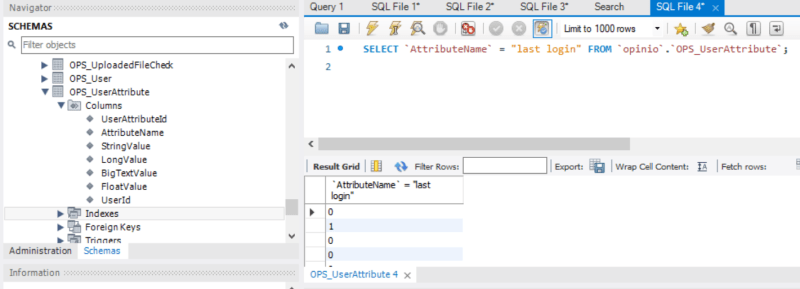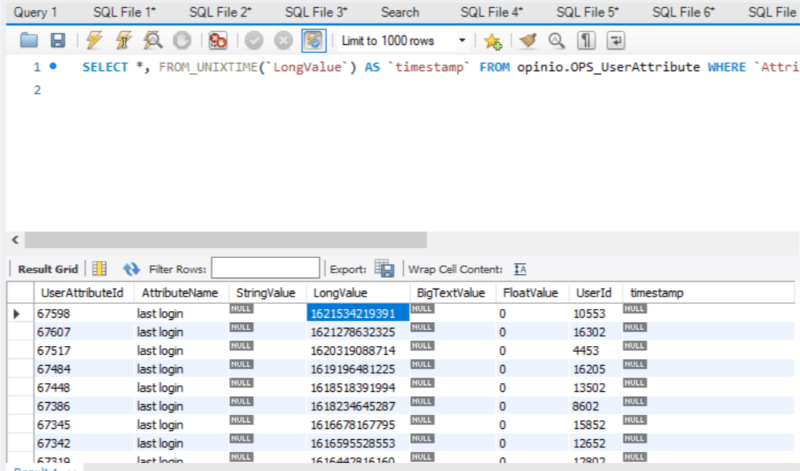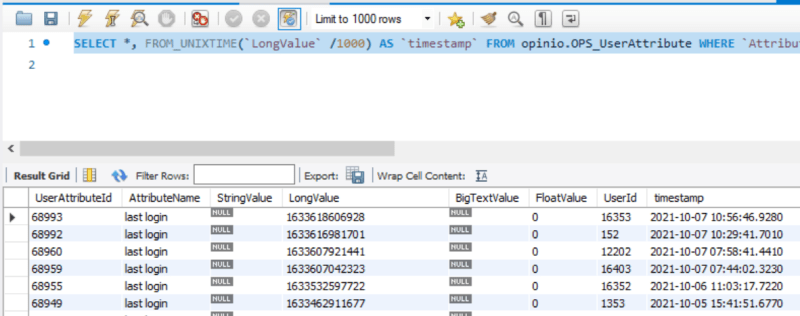Hi Everyone,
I had this thread on SQL Server forum and was told since I am using MySQL to ask for this request here:
I am a newbie getting started with SQL and did some search online but so far have not been able to solve and gather the data I need.
I need to get all users last login data so I may then delete user accounts that not logged in for a long time as I have reached the max license usage for this system.
I have found the Opinio SQL table and drilled down to table OPS_UserAttribute where I can see column named AttributeName which when I run a search on this table using MySQL the data results in last login instead of showing me the actual date of last login (below a screenshot of data I am looking for)
 .
.
I ran below SQL command but all I got was data as 0 or 1:

Thank you in advance for your support!
I had this thread on SQL Server forum and was told since I am using MySQL to ask for this request here:
I am a newbie getting started with SQL and did some search online but so far have not been able to solve and gather the data I need.
I need to get all users last login data so I may then delete user accounts that not logged in for a long time as I have reached the max license usage for this system.
I have found the Opinio SQL table and drilled down to table OPS_UserAttribute where I can see column named AttributeName which when I run a search on this table using MySQL the data results in last login instead of showing me the actual date of last login (below a screenshot of data I am looking for)

I ran below SQL command but all I got was data as 0 or 1:

Thank you in advance for your support!




